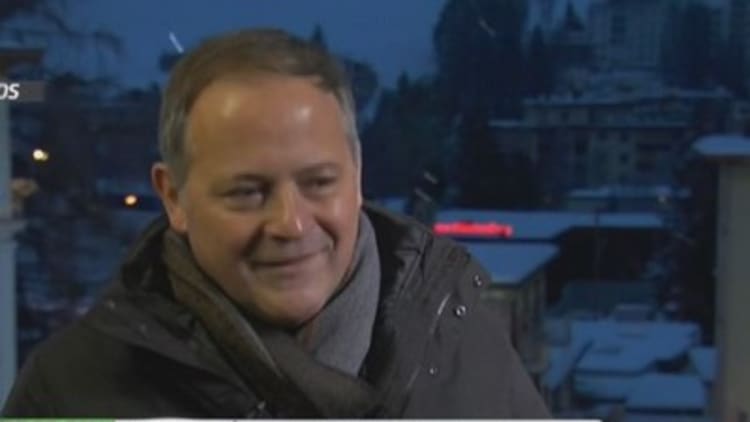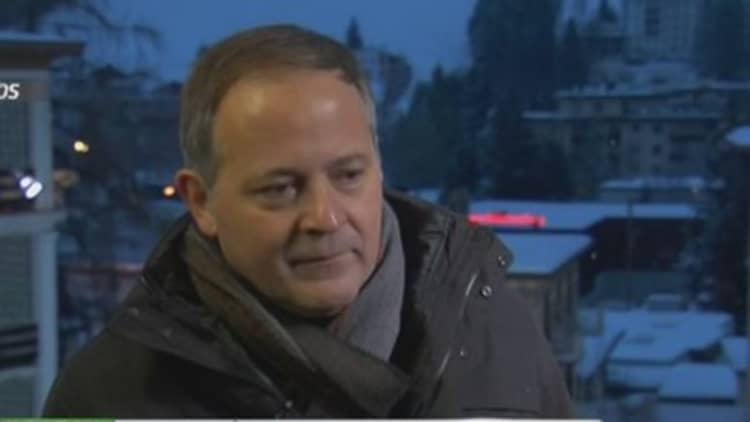


Even before the European Central Bank (ECB)'s decision to launch a quantitative easing program was announced on Thursday, it was controversial. However, Benoit Coeure, one of the bank's key decision-makers, insisted to CNBC that the trillion-euro launch had been the right move.
Read MoreLive blog: Reaction to Saudi succession, Europe QE
The slightly larger-than-expected program, which will see the ECB buy 60 billion euros ($69 billion) worth of corporate and government bonds a month for at least 18 months, was welcomed in global stock markets, with US and European equity markets rising after its announcement Thursday afternoon.
"It shows that the program is credible for market participants," Benoit Coeure, the French economist who has served as part of the ECB's executive board since 2011, told CNBC at the World Economic Forum in Davos.
"It will work because it is big, because it's strong, and because it's open-ended."

Spooked by the specter of looming deflation and slowing economic growth, the ECB is now planning to provide a fillip to the euro zone's economy by buying sovereign bonds from March until at least September 2016, or until inflation shows signs of picking up pace.
"Lights were blinking red across our dashboard and we had to do something. The only question was what was the right instrument?" Coeure said.
Coeure admitted that there had been divisions on the board over the program in recent months, with some thinking it was too early and some too late. However, this month there was an "overwhelming majority" in favor of launching it, he added.
The main opposition is believed to come from Jens Weidmann, the President of the Germany's central bank, the Bundesbank. German policymakers have repeatedly expressed concerns that this might allow countries to have economic growth without making necessary reforms to their economies.
"This is not about Germany, this is about Europe. We don't have a fiscal union, we don't have a European Treasury, so we had to do it our own way, in a way that fits the way we are, which is a monetary union without a fiscal union," Coeure said.
- By CNBC's Catherine Boyle in Davos







